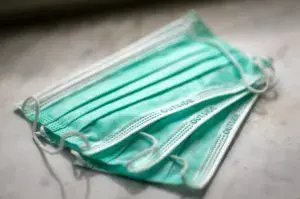Advertisement Standards Council of India (ASCI), a self-regulatory voluntary organization of the advertising industry on October 20, 2020 has issued an advisory concerning COVID-19 advertisements[1].
In its advisory, ASCI noted that there has been a proliferation of advertisements with misleading claims around COVID-19 cures and preventions during the pandemic.
Also read Rise in false and misleading advertisements amidst Coronavirus
What does the advisory say?
- Advertising claims not applicable to Coronavirus- The Advisory states that advertisers should avoid making claims that the advertised product can assist in destruction or removal of any virus other than coronavirus. In case advertisers choose to claim removal of any other virus in their advertisement, they should include a disclaimer such as “Claim not applicable to coronavirus (COVID-19)” or a similar message with the disclaimer size and position as per the Disclaimer Guideline of ASCI
- Advertising of AYUSH products– That the Advertisers of Ayurvedic, Unani, Siddha and Homeopathy (AYUSH) products and services have been advised to abide by the Order of Ministry of AYUSH dated April 1, 2020[2], on coronavirus (COVID-19) advertisements which directs AYUSH Regulatory authorities of states and UTs to prevent misleading advertisements of AYUSH-related claims for COVID-19 treatment in print, TV and electronic media and take necessary action against the persons/agencies involved in contravening the relevant legal provisions of Disaster Management Act, 2005. Section 52 of the Disaster Management Act makes making false claims a punishable offence. Section 33-E of the Drugs and Cosmetics Act, 1940 states that an AYUSH drug shall be deemed to be misbranded if it makes any false claim or is misleading in any particular manner and is punishable under Section 33-I(2) of the Act.
- Claims supported by National and International authorities- Further, advertisers making to claims to reduce the chances of becoming infected with coronavirus (COVID-19) or gain immunity against it must substantiate their claims with technical support of national and international authorities such as WHO, ICMR, MoHFW, AYUSH, DCGI, CDC (USA), well recognized medical/technical literature or regulatory-approved clinical research conducted by a recognized medical institute/laboratory.
ASCI’s Code for Self-Regulation in Advertising
Advertising is the key to product placement in the market and also in the minds of consumers. Therefore, in order to regulate the content of advertisements, ASCI’s Code for Self-Regulation in Advertising prescribes that advertisements should be truthful and not distort facts or mislead consumers by omissions or implications. Further, they shouldn’t violate trust of consumers or exploit their lack of experience or knowledge.
While the pandemic has wreaked havoc, it has also prompted consumer goods, pharmaceutical and ayurvedic companies to design and develop new products that enable consumers to practice better hygiene practices and enhance their health. Companies around the globe are working towards develop therapeutic drugs and vaccines that cures and protects patients infected by the virus. The Advisory serves as a reminder to companies to not make claims that the advertised product cures coronavirus or provides complete immunity from the virus without backing such them with scientific evidence.
The Press Release states that ASCI has processed 250 advertisements and reported 233 from the healthcare sector to the ministry. Of these, 162 were successfully resolved as the advertisers either withdrew the advertisements or modified them. The remaining 71 were taken up by the ministry for appropriate action. Further, it has screened more than 500 advertisements that had COVID-related misleading claims on social media platforms and advertiser websites.
[1] https://ascionline.org/images/pdf/press-release-asci-announces-covid-19-advertising-advisory.pdf
[2] https://ascionline.org/images/pdf2/ministry_of_ayush_order_for_states_uts.pdf
Related Posts
Ministry of AYUSH orders to stop advertisement of AYUSH-related claims
Rise in False and Misleading advertisements amidst Coronavirus Outbreak
Dettol withdraws advertisement claiming soap bars to be ineffective
The Ministry of Consumer Affairs released Draft Guidelines for Misleading Advertisements


